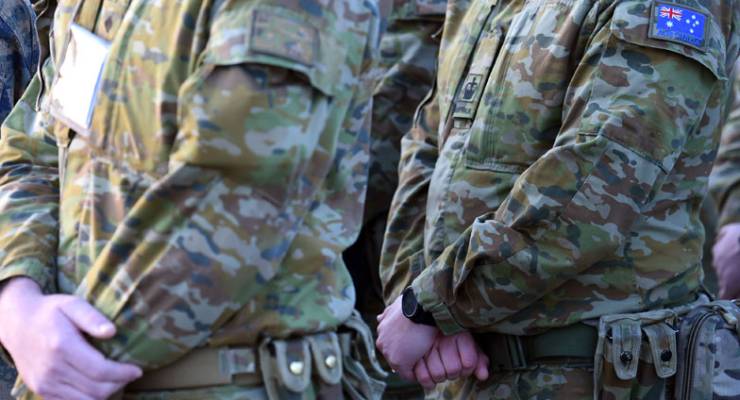
Last week we looked at the system of checks and balances that stops (or fails to stop) the US president from sending the country to war without authorisation. But before we get too smug, it’s worth bearing in mind our system is demonstrably worse.
What are the rules in Australia as they stand?
“In Australia, there is no such check,” Clinton Fernandes, professor of international and political studies at the University of New South Wales told Crikey. “The executive can send us to war with no oversight.”
“The constitution does not say anything about where the power to declare war lies. It is assumed that this is part of the executive power set out in section 61. There is no constitutional requirement for the Australian Parliament to give its blessing to anyone — Governor-General, Minister for Defence or Prime Minister — before Australian troops are committed to war,” he said. “There is no constitutional need even to debate the decision before it is made.”
Ultimately, it comes down to the Minister for Defence. Section eight of the Defence Act 1903 states:
(1) The Minister has general control and administration of the Defence Force…
(2) In performing and exercising functions and powers under this Part, the Chief of the Defence Force and the Secretary must comply with any directions of the Minister.
Fernandes argues that there are still some situations where the executive needs the untrammeled right to go to war — wars of necessity where Australia is being attacked, or about to be. However, with wars of choice (among which he would place the war in Iraq, and attacks on Syria), there must be far greater oversight.
“We need to empower our senate intelligence committees so that they can see the relevant intelligence justifying war, as is the case in America,” he said. “As it stands, committees by their very charter cannot inquire into any activity past present or proposed.”
What happened in recent wars?
Iraq: In 2003, then governor-general Peter Hollingworth had no role in the decision to invade Iraq. Labor opposed the war without UN backing, and later moved a censure motion against the Howard government in the Senate. There was parliamentary debate, but, argues Fernandes, then-prime minister John Howard had already made up his mind. “It was more of an airing of views than any thing that was going to change the course of action we we’re going to take,” he said.
Afghanistan: In the aftermath of the September 11 attacks in the US, Howard invoked Article VI of the ANZUS Treaty in support of Australia’s involvement. This is, so far, the only time the treaty has been invoked by either side. However, this was not strictly relevant; the clause specifies that an attack must be in the Pacific to invoke the treaty.
Parliament supported the commitment. Australia was partnered with Dutch forces in Uruzgan. Fernandes points out that, as NATO member, the Dutch had far more onerous requirements than Australia had under ANZUS — an attack on one NATO is member is considered an attack on all NATO Allies — and yet “they refused to get involved in the Afghanistan war until they had full parliamentary approval”. Other NATO allies (Norway, Germany) have similar requirements for parliamentary oversight, unaffected by their NATO requirements.
Vietnam: Again, there was debate, but the decision had been made, Fernandes said. “The Labor leader at the time Arthur Calwell, said the 1966 election would be a referendum on Australia’s involvement in the Vietnam War. And the Liberals won with a majority greater than anything Menzies ever secured; people forget, but at the time, Australia’s involvement in Vietnam was very popular.”
What would be the best arrangement?
Ultimately, Fernandes says, it’s a question of shared responsibility.
“Parliament is required to deal with broken soldiers returning from war, it’s required to help pay for the reconstruction of Iraq, or post-war aid to Afghanistan,” he said. It’s estimated, as of 2015, that Australian taxpayers have spent around $15 billion in taxes paying for our various military engagements since 1999.
“Politicians should not just be able to stand beside soldiers, striking patriotic poses and not have to take responsibility for sending them there.”








Armed forces get upset if there is not the occasional war.
“…people forget, but at the time, Australia’s involvement in Vietnam was very popular.”
They do indeed: Yellow Peril, Domino Theory and all that.
Now we have different justifications for war: R2P, Humanitarian Intervention, Axis of Evil and all that. Doesn’t decrease the body count much, but it sounds much nicer.
During the break up of Yugoslavia some unpleasant newspeak terms became common, ethnic cleansing (so fresh, so sparkling..!)being the standout.
My favourite though, was “humanitarian bombing campaign”.
It had it all, evil, futility and tenacity.
All the bombs had smiley faces. They dropped conversation lollies- those heart shaped ones that say “I love you” or “Be mine”.
I remember the break up of Yugoslavia very well, AR. I think of it as the test run, now. I’m not sure how much of my memory is strictly accurate and how much comes from the film, “Wag the Dog”.
It’s a worry that the checks and balances are worse here, which is probably so that Australia is not inhibited in any way should the request to join the war come from Washington.
It’s many years since I checked the Constitution for the exact wording of this but I believe that the Governor General is head of the armed forces and he/she acts on, and only on, the direction/advice of the Parliament. Thus the nation may not go to war without the Parliament’s majority vote of approval to advise/request the GG to thus direct the armed forces.